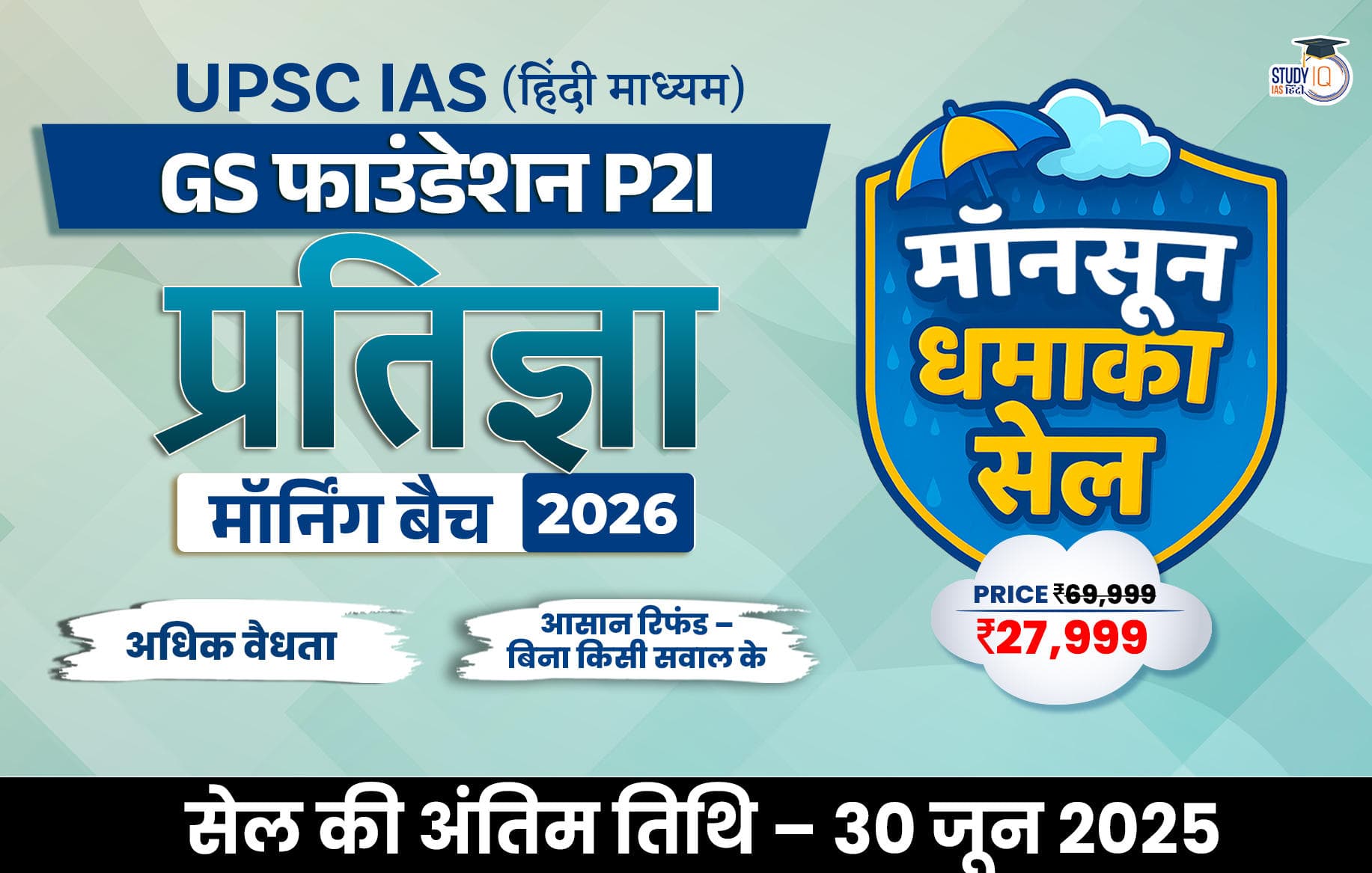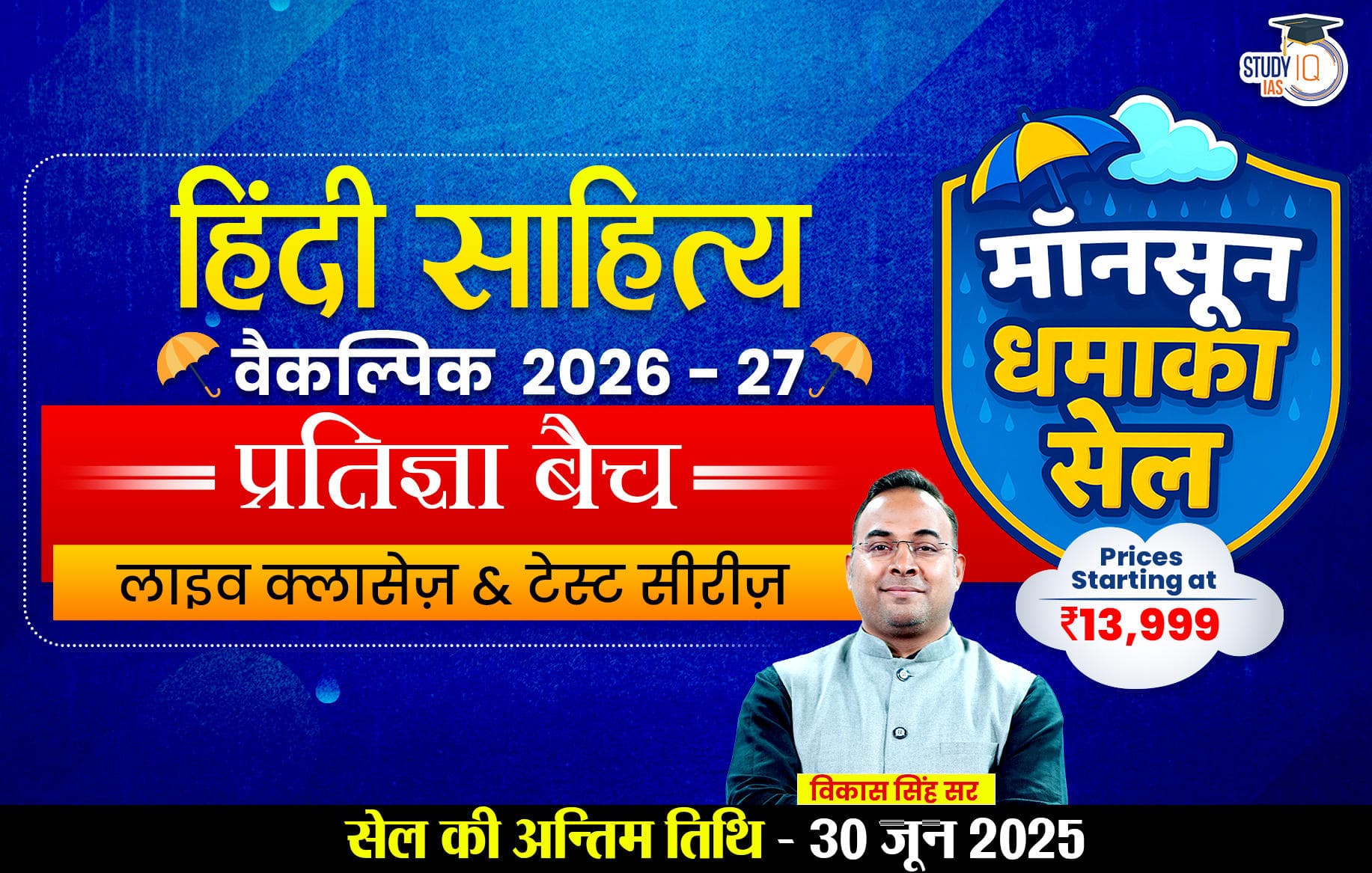Table of Contents
Article 15 of Indian Constitution
Article 15 in India protects citizens from discrimination based on race, religion, gender, and caste. Caste discrimination is particularly common, leading to practices like untouchability, which is now illegal. However, in some areas, people still face these issues due to deep-rooted beliefs. The Constitution provides reservations for Scheduled Castes, Scheduled Tribes, and Other Backward Classes to support their economic advancement. In 2019, the government introduced the 124th Constitution Amendment Bill to reserve 10% of spots in higher education and government jobs for Economically Weaker Sections (EWS). This amendment added clause (6) to Article 15, ensuring equal opportunities for EWS who face economic disadvantages.
Also, Article 15 addresses gender discrimination, offering protections for women to help them secure equal rights and opportunities.
Read More: Article 14 of Indian Constitution
Article 15 of Indian Constitution Provisions
Article 15 has been desperately needed since the Constitution’s adoption and is still in place. Six clauses in Article 15 of Indian Constitution list the many forms of discrimination that are categorically prohibited.
| Article 15 Clause | Provisions |
| Article 15(1) | It provides that the State shall not discriminate against any citizen on grounds only of religion, race, caste, sex or place of birth. |
| Article 15(2) | It states that no citizen shall be subjected to any disability, liability, restriction or condition on grounds only of religion, race, caste, sex, or place of birth with regard to:
Access to shops, public restaurants, hotels and places of public entertainment venues; The usage of wells, tanks, bathing ghats, highways, and public resort locations that are totally or partially supported by state funding or intended for wide public use. |
Read More: Articles 12 and 13
Article 15 of Indian Constitution Exceptions
Article 15 (3): The state may provide any particular provisions for women and children. For instance, giving children free education or reserving seats for women in local councils. The Supreme Court held in Revathi v. Union of India, AIR 1998, that the word “for” used in this clause indicated that states can provide women and children special preference while not discriminating against them.
Click here to Know about 6 Fundamental Rights of Indian Constitution
Article 15 (4): The state is permitted to make any special provision for the advancement of any socially and educationally backward classes of citizens or for the scheduled castes and scheduled tribes. For instance, public educational institutions may offer fee discounts or seat reservations. This provision was added by the first Amendment Act, of 1951.
Article 15 (5): The state has the authority to make any special arrangements for the advancement of any socially and educationally disadvantaged classes of citizens, as well as for the scheduled castes and scheduled tribes, regarding their admission to educational institutions, including private educational institutions, whether state aid it or not, minority educational institutions are an exception of it.
The 93rd Constitutional Amendment Act of 2005 added it. The 93rd Constitutional Amendment Act of 2005 was upheld as legitimate by the Supreme Court in the case of Ashok Kumar Thakur v. Union of India, 2008.
Article 15 (6): The state is empowered to make any special provision for the advancement of any economically weaker sections of citizens. Additionally, the state is permitted to make a provision for the reservation of up to 10% of seats for these sections when it comes to admission to educational institutions, including private educational institutions, whether aided or unaided by the state, with the exception of minority educational institutions.
In addition to the current reservations, this reservation of up to 10% would be made. According to family income and other indices of economic disadvantage, the state would periodically notify the economically weaker sectors for this reason. The 103rd Amendment Act of 2019 adds it.
Read More: Right to Equality
Article 15 of Indian Constitution Reservation for OBC
In order to give effect to Article. 15 (5), The Centre passed the Central Educational Institutions (Reservation in Admission) Act, 2006, which established a 27% quota for applicants from Other Backward Classes (OBCs) in all central higher educational institutions, including the IITs and IIMs.
Here it should be noted that the children of the following different categories of people belong to the ‘creamy layer’ among OBCs and thus will not get the quota benefit:
- Constitutional Posts: Persons holding constitutional posts like President, Vice-president, Judges of SC and HCs, Chairman and Members of UPSC and SPSCs, CEC, CAG and so on.
- Officers: Group ‘A’ / Class I and Group ‘B’ / Class II Officers of the All India, Central and State Services; and Employees holding equivalent posts in PSUs, Banks etc., and also in private employment.
- Top-ranked army officers: Persons who are in the rank of colonel and above in the Army and equivalent posts in the Navy, the Air Force, and the Paramilitary Forces.
- Other Professions: Professionals like doctors, lawyers, engineers, artists, authors, consultants and so on. Persons engaged in trade, business and industry.
- Agricultural land: People holding agricultural land above a certain limit and vacant land or buildings in urban areas.
- Annual Income: Persons having a gross annual income of more than ₹8 lahks or possessing wealth above the exemption limit. It was Rs. 1 lakh when the “creamy layer” ceiling was first introduced in 1993. Later, it was changed to Rs. 2.5 lakh in 2004, Rs. 4.5 lakh in 2008, Rs. 6 lahks in 2013, and Rs. 8 lahks in 2017.
Read about: Important Articles of Indian Constitution
Article 15 of Indian Constitution Reservation for EWS
In order to give effect to Article 15 (6), the central government issued an order in 2019, to provide 10% reservation to the Economically Weaker Sections (EWSs) in admission to educational institutions. The benefit of this reservation is available to EWS members who are not covered by any of the SC, ST, or OBC reservation programs currently in place. The following are the requirements for eligibility set forth in this regard:
- Annual Income: Persons whose family has a gross annual income below ₹8 lahks are to be identified as EWSs for the benefit of reservation. The income would be for the financial year prior to the year of application and would comprise income from all sources, such as salaries, businesses, professions, and agriculture.
- Possession of Asset: Persons whose family owns or possesses any one of the following assets are to be excluded from being identified as EWSs, irrespective of the family income; first, Agricultural land of 5 acres and above; second, residential flat of 1000 sq. ft. and above; third, Residential plots of 100 sq. yards and above in notified municipalities.
- Determination of Property: The property held by a family in different locations or different places/cities would be clubbed while applying the land or property holding test to determine EWS status.
- Definition of Family: For this purpose, the individual requesting the benefit of the reservation, his or her parents, siblings, and children under the age of 18 are all considered members of the individual’s immediate family.
Read More: Salient Features of Constitution of India
Area-wise Reservation Article 371
Article 371 includes special provisions for certain states in India. These provisions allow for area-wise reservations to help local people access opportunities in public employment and education. Different states may have different rules based on their specific needs.
| Articles in the Constitution that provide special provisions for various states: | |
| Article 371 | Special provisions for the states of Maharashtra and Gujarat. |
| Article 371A | Special provisions for the state of Nagaland. |
| Article 371B | Special provisions for the state of Assam. |
| Article 371C | Special provisions for the state of Manipur. |
| Article 371D | Special provisions for the state of Andhra Pradesh. |
| Article 371F | Special provisions for the state of Sikkim. |
| Article 371G | Special provisions for the state of Mizoram. |
| Article 371H | Special provisions for the state of Arunachal Pradesh. |
| Article 371I | Special provisions for the state of Goa. |
| Article 371J | Special provisions for the state of Karnataka. |
Viewpoint of Government
Prime Minister Narendra Modi described the act as a significant step toward ensuring justice for all parts of society. Former Finance Minister Arun Jaitley explained the 10% quota for economically weaker sections, stating that people from different backgrounds cannot be treated equally. He noted that the Supreme Court’s 50% cap on reservations only applies to caste-based quotas and does not affect this new economic reservation.
Former Social Justice Minister Thaawarchand Gehlot mentioned that previous state laws for economic reservations were struck down by courts because the Constitution didn’t initially support it. With this new law now in the Constitution, it is less likely to be overturned by the Supreme Court.
Socially and Educationally Backward Classes
The term “socially and educationally backward classes” in Article 15(4) refers to underprivileged groups that have faced discrimination. This includes Other Backward Classes (OBCs) who are not classified as Scheduled Castes (SCs) or Scheduled Tribes (STs).
Limit of Reservation
The Supreme Court set a 50% cap on total reservations in the Indira Sawhney v. Union of India case (1993). It allowed a 27% reservation for OBCs, stating that exceeding the limit could infringe on others’ rights to equality. The court did provide guidelines for exceeding this cap in extraordinary situations.
Reservation Over 50%
While the upper limit for reservations is generally 50%, some states have exceeded this due to special needs for uplifting certain backward classes. These states include:
- Tamil Nadu: 69% total reservation (50% for OBCs)
- Maharashtra: 52%
- Telangana: 62%
- Haryana: 67%
These exceedances are based on specific requirements for social upliftment.
Conclusion
Article 15 has made a significant impact on improving the lives of marginalized communities since it was introduced in 1949. It serves as a foundation for laws that promote social harmony and has led to a decrease in discrimination against underprivileged groups. Article 15 acts as a protector against inequality, helping India embrace its diversity while addressing issues like sexism, racism, and the caste system.
This article clearly states that there should be no discrimination based on religion, race, caste, gender, or place of birth. It aims to provide equal opportunities and protect the rights of all citizens, especially those who are economically and socially disadvantaged.
While Article 15 has led to debates about reservations for weaker sections, these measures are designed to support those in need, not to divide society. Although discrimination still exists, its prevalence has decreased over time. The spirit of equality emphasized in India’s Constitution, is reflected in Article 15 and continues to guide the nation toward greater unity and fairness.
Article 15 of Indian Constitution UPSC
Article 15 has helped Indian society to stand tall and proud despite such great diversity and all forms of sexism, racism, and rigid caste system, and it will continue to do so forever. It is truly the protector of the oppressed and a shield against prejudice.
It is significant to note that Article 15 prohibits discrimination on the grounds of religion, race, caste, gender, or place of birth in all circumstances. People have been discriminated against in several ways throughout history, and the term discrimination covers a broad variety of topics.

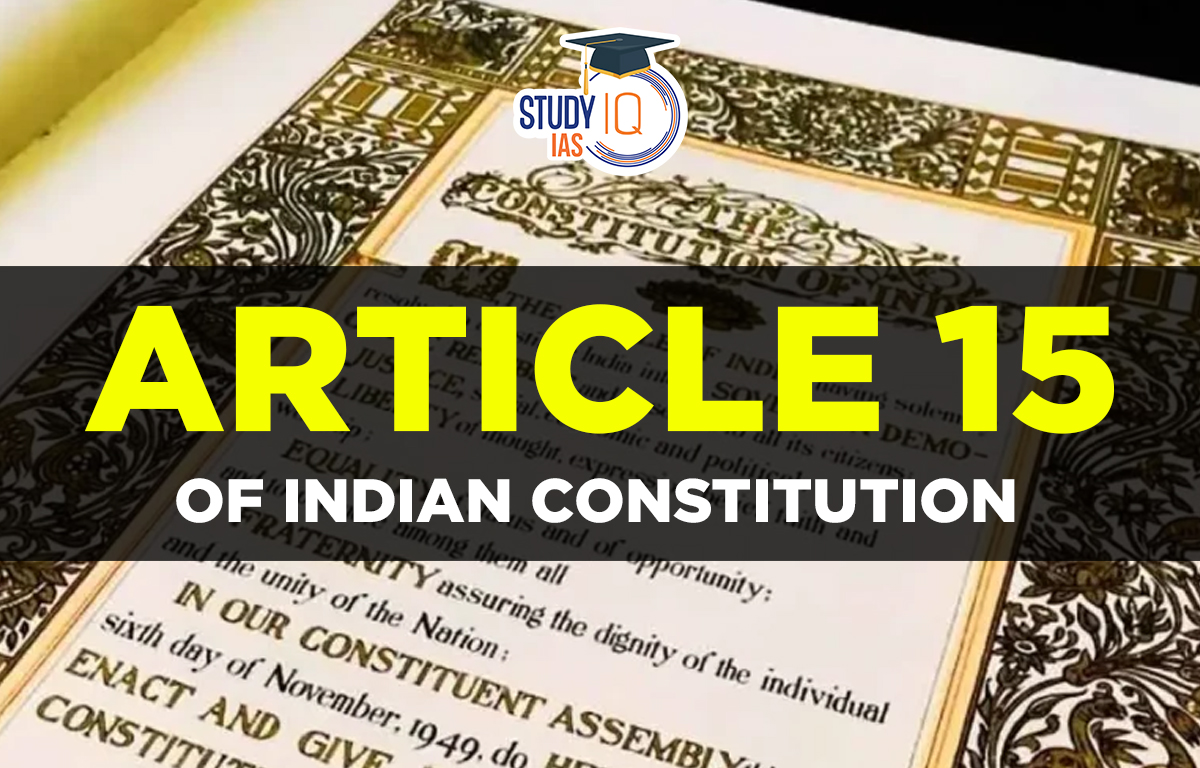
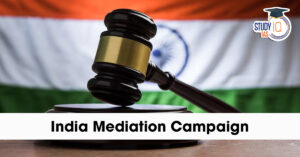 India Mediation Campaign, Objectives, Pr...
India Mediation Campaign, Objectives, Pr...
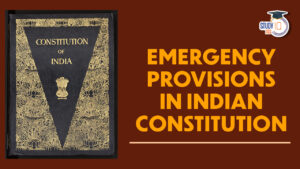 Emergency Provisions in Indian Constitut...
Emergency Provisions in Indian Constitut...
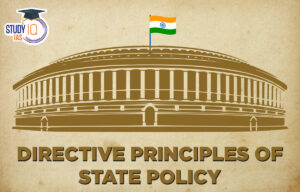 Directive Principles of State Policy (DP...
Directive Principles of State Policy (DP...


